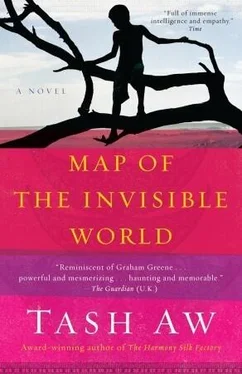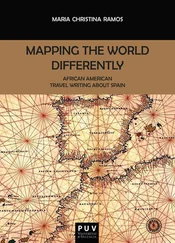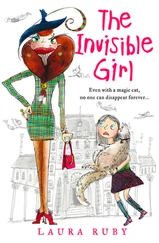Tash Aw - Map of the Invisible World
Здесь есть возможность читать онлайн «Tash Aw - Map of the Invisible World» — ознакомительный отрывок электронной книги совершенно бесплатно, а после прочтения отрывка купить полную версию. В некоторых случаях можно слушать аудио, скачать через торрент в формате fb2 и присутствует краткое содержание. Год выпуска: 2010, Издательство: Spiegel & Grau, Жанр: Современная проза, на английском языке. Описание произведения, (предисловие) а так же отзывы посетителей доступны на портале библиотеки ЛибКат.
- Название:Map of the Invisible World
- Автор:
- Издательство:Spiegel & Grau
- Жанр:
- Год:2010
- ISBN:нет данных
- Рейтинг книги:4 / 5. Голосов: 1
-
Избранное:Добавить в избранное
- Отзывы:
-
Ваша оценка:
- 80
- 1
- 2
- 3
- 4
- 5
Map of the Invisible World: краткое содержание, описание и аннотация
Предлагаем к чтению аннотацию, описание, краткое содержание или предисловие (зависит от того, что написал сам автор книги «Map of the Invisible World»). Если вы не нашли необходимую информацию о книге — напишите в комментариях, мы постараемся отыскать её.
comes an enthralling novel that evokes an exotic yet turbulent place and time—1960s Indonesia during President Sukarno’s drive to purge the country of its colonial past. A page-turning story,
follows the journeys of two brothers and an American woman who are indelibly marked by the past — and swept up in the tides of history.
Map of the Invisible World — читать онлайн ознакомительный отрывок
Ниже представлен текст книги, разбитый по страницам. Система сохранения места последней прочитанной страницы, позволяет с удобством читать онлайн бесплатно книгу «Map of the Invisible World», без необходимости каждый раз заново искать на чём Вы остановились. Поставьте закладку, и сможете в любой момент перейти на страницу, на которой закончили чтение.
Интервал:
Закладка:
“Leave those cakes alone, you little thief,” someone called out.
Adam turned to face his accuser, a plump woman with a mole at the edge of her mouth that made her look as if she was smiling cheekily. “But I have money …” As he heard his own words, Adam realized that he sounded as if he was lying. He put his hand in his pocket: nothing. The other pocket: nothing.
“You kids are getting worse every day,” the woman said, smiling her lopsided smile that was not really a smile. “You’re like mangy dogs, you lot. Get lost.”
Adam went back to the docks. It was turning dark and a baby was crying. It was thirsty, Adam thought, so thirsty it could not even cry properly. Its thin dry cough drifted over the sound of the water licking at the quay and the distant chugging of a tugboat. He sat against a low wall, next to an old blind woman, and pulled his knees up to his chin.
Later, in his half sleep, his imaginary city came to him once more, unbidden. He regretted having created it and wished it would go away; he wanted it to leave him tonight and every night for the rest of his life. But still those images filled his head, at once glittering and hazy. Yesterday they had made his sleep rich with excitement, today they made him feel foolish. He knew he would never find his mother. He was no longer sure he wanted to.
It was very late when Karl found him asleep at the base of the wall, his head resting sideways on the small bony pillow of his hands. He looked as if he was listening for a heartbeat deep in the ground.
“Let’s go home, Son,” Karl said softly.
The car had never felt so comfortable. It smelled of beeswax and Karl’s clean clothes and its engine rattled in a patient monotone. Karl gave him a bottle of water and some biscuits wrapped in newspaper. They drove along darkened roads, the broad sweep of their headlights illuminating thin clouds of insects. Karl put his hand on the back of Adam’s neck; it felt broad and very cool. The fresh evening air eddied through the open windows and Adam realized he was weeping.
7
J esus, you certainly don’t eat like an Indonesian,” Margaret said as she watched the boy finish his second ham sandwich. In the last hour he had consumed half a pack of processed cheese slices, plus the last of her Cracker Barrel cheddar (much-prized, carefully transported from Australia, like treasured contraband, by Mick whenever he went on home leave: It was the closest thing to real cheese they could get); a jar of peanut butter, spooned directly into his mouth like soup; a few slices of old dry ham, curling and brown at the edges; six slices of bread; a handful of raisins; and two bottles of Pepsi. She had expected him to turn his nose up at the meager contents of her refrigerator, or else pick cautiously at the curious assortment of unspicy food, but he had not hesitated. He clearly had not eaten in some time.
“Now tell me again how you got here, how you found me … Adam.” Margaret hesitated over the name. She pronounced it in the Indonesian way, because he looked Indonesian, but she was not entirely certain which language she should be speaking, or indeed how she should be communicating with this boy. He had started by speaking to her in English, with more than a hint of a Dutch accent, which disconcerted her; but when he switched to Indonesian, which he did quite frequently and randomly, she found his accent impossible to place — a real problem, given that she usually adjusted her accent to that of the other person (that was another of her strengths: Mimicry and the Creation of Rapport; her Balinese accent was especially quick and fluent). “Just take your time — I want to know everything.”
He began to speak, his mouth still full of ham sandwich.
“Please slow down,” Margaret said. “You’ll be sick if you continue eating like that; in fact, it’s making me feel ill just watching you.”
Watching him was, in fact, an unsettling but not wholly unpleasant experience. He was an interesting case study: neutral Indo-Malay features with a suggestion of Minangkabau-Malay ancestry, an essentially clear complexion darkened by the Spartan life of the southeastern islands, which made him look at once refined and rudimentary, thus proving Margaret’s long-standing belief that the way we look — our basic features, stripped of clothing and mannerism — is affected by the conditions in which we live. It was as if a Sumatran nobleman had copulated with a tribeswoman from Irian, and this was the result. His hair was thick and slightly wavy, still damp from the shower she had insisted he take. It was shorn at the back and sides and combed over purposefully at the top with a side parting that looked like a fold in a great black sea, so precise she wanted to trace her finger along it.
“Please forgive me,” he began and coughed — a stifled half cough, almost like punctuation, an expression of politeness. “I am very rude. I have many things to tell you. Or, more precisely, to ask you.”
“Well, I’m all yours.” Margaret tried to remain calm. She wanted to appear interested but not intrigued, to hide the sudden flush in her cheeks and the rapid tick-ticking in her chest that made her breathing quicken. His intonation, his choice of words (or, more precisely) , that somewhat mannered old-world formality, the slight abruptness, the nervous cough — she had heard these words before, many years ago. She had known these unmistakable speech patterns so well and had kept their echoes somewhere in the archives of her consciousness, like old record albums she thought she had lost. But here they were, clear and true, with only the slightest distortion, as if the vinyl had warped with age — or maybe it was just her; maybe she had warped with age.
He began to relate to her, starkly and without any fuss, exactly what he had seen. “It has been nearly ten days since he was taken away. I do not know what they have done with him. This is him, I mean, he …” He put his finger on the photograph that was on the table. “This one, here.”
The photo sat squarely in the middle of the smooth green Formica surface. Adam had put it there as soon as he had entered the house, and it had remained there untouched throughout his shower and his meal. Margaret had left it alone; it lay there like an unknown, perhaps dangerous object that warranted caution, even though she knew perfectly well what it was.
“Here,” Adam said, sliding the photo toward her, his index finger still fixed to the same point. “This is my father.”
“This one?” Margaret wondered if she sounded disingenuous to him.
“Yes. He’s actually my foster father, which is why we, well, don’t look alike.”
“Yes, I had deduced that. What’s his name again?”
“Karl de Willigen.” Adam looked at her with a slight frown; he seemed anxious, a touch confused. “And this is you, isn’t it?” His index finger landed on another grainy figure, standing next to Karl. They were both dressed in sarongs; she wore a floral lace tunic, he a stiff, boxy white shirt and Balinese headdress. There were others too, Europeans, all in local costume. Margaret had never seen the photo before. It looked like a terrible fancy-dress party, she thought, embarrassing and offensive; she wished it had been a party, which would have made it less awful. A part of her wished that she had no recollection of these people or of this time of her life, but there was no escape: Her perfect memory retained everything.
“Um-hmm, I suppose it is. The evidence is pretty unequivocal, isn’t it?” Hearing Karl’s name pronounced in exactly the same way he would have pronounced it — with the soft v and soft, breathy g made her head spin. She couldn’t handle that voice coming from this body. She looked at Adam and smiled. “It’s from a long time ago. I’ve changed so much; we all have. I’m sure Karl doesn’t look like he does here.” She laughed a breezy laugh.
Читать дальшеИнтервал:
Закладка:
Похожие книги на «Map of the Invisible World»
Представляем Вашему вниманию похожие книги на «Map of the Invisible World» списком для выбора. Мы отобрали схожую по названию и смыслу литературу в надежде предоставить читателям больше вариантов отыскать новые, интересные, ещё непрочитанные произведения.
Обсуждение, отзывы о книге «Map of the Invisible World» и просто собственные мнения читателей. Оставьте ваши комментарии, напишите, что Вы думаете о произведении, его смысле или главных героях. Укажите что конкретно понравилось, а что нет, и почему Вы так считаете.












